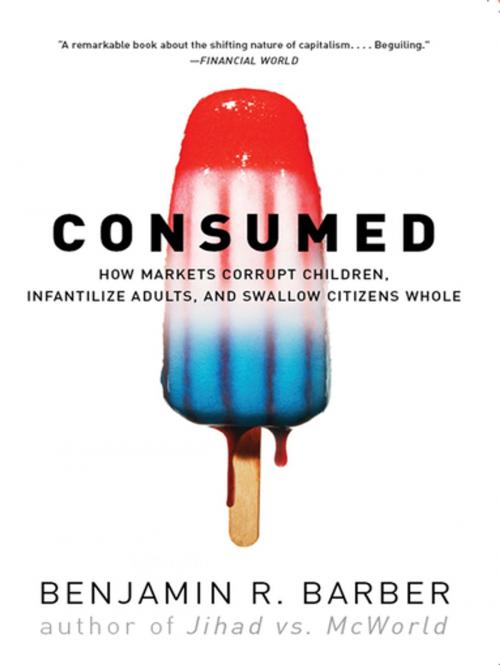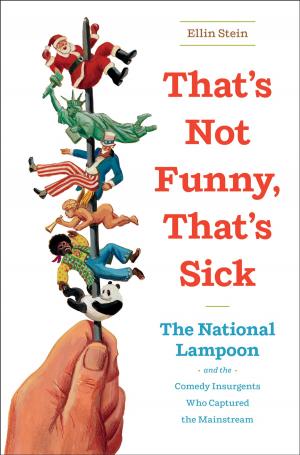Consumed: How Markets Corrupt Children, Infantilize Adults, and Swallow Citizens Whole
Business & Finance, Economics, Macroeconomics, Marketing & Sales, Consumer Behaviour, Nonfiction, Social & Cultural Studies, Political Science, Politics, Economic Conditions| Author: | Benjamin R. Barber | ISBN: | 9780393070392 |
| Publisher: | W. W. Norton & Company | Publication: | March 17, 2008 |
| Imprint: | W. W. Norton & Company | Language: | English |
| Author: | Benjamin R. Barber |
| ISBN: | 9780393070392 |
| Publisher: | W. W. Norton & Company |
| Publication: | March 17, 2008 |
| Imprint: | W. W. Norton & Company |
| Language: | English |
"Powerful and disturbing. No one who cares about the future of our public life can afford to ignore this book."—Jackson Lears
A powerful sequel to Benjamin R. Barber's best-selling Jihad vs. McWorld, Consumed offers a vivid portrait of an overproducing global economy that targets children as consumers in a market where there are never enough shoppers and where the primary goal is no longer to manufacture goods but needs. To explain how and why this has come about, Barber brings together extensive empirical research with an original theoretical framework for understanding our contemporary predicament. He asserts that in place of the Protestant ethic once associated with capitalism—encouraging self-restraint, preparing for the future, protecting and self-sacrificing for children and community, and other characteristics of adulthood—we are constantly being seduced into an "infantilist" ethic of consumption.
"Powerful and disturbing. No one who cares about the future of our public life can afford to ignore this book."—Jackson Lears
A powerful sequel to Benjamin R. Barber's best-selling Jihad vs. McWorld, Consumed offers a vivid portrait of an overproducing global economy that targets children as consumers in a market where there are never enough shoppers and where the primary goal is no longer to manufacture goods but needs. To explain how and why this has come about, Barber brings together extensive empirical research with an original theoretical framework for understanding our contemporary predicament. He asserts that in place of the Protestant ethic once associated with capitalism—encouraging self-restraint, preparing for the future, protecting and self-sacrificing for children and community, and other characteristics of adulthood—we are constantly being seduced into an "infantilist" ethic of consumption.















